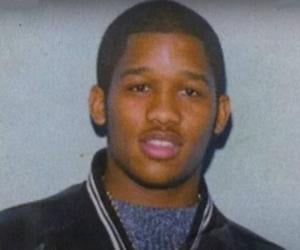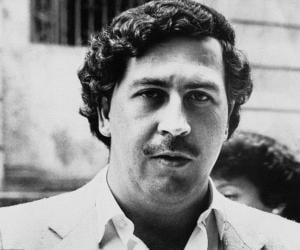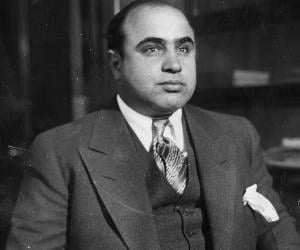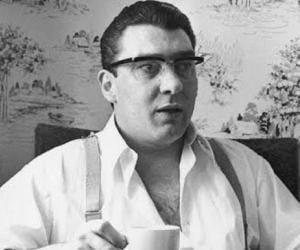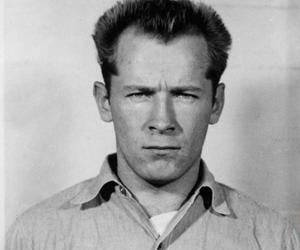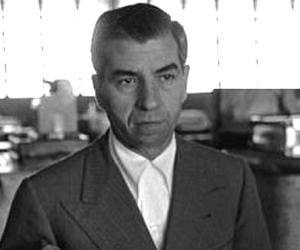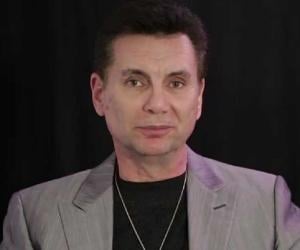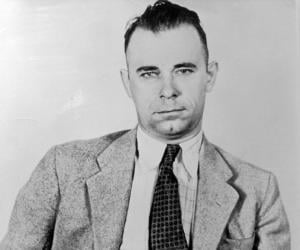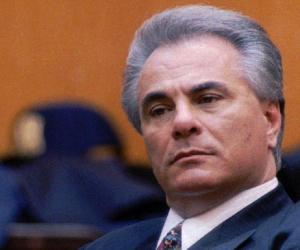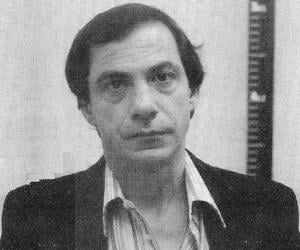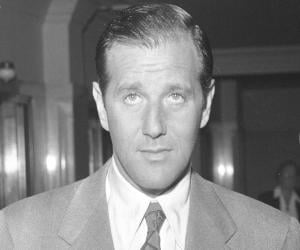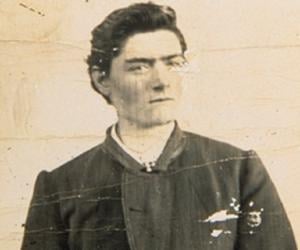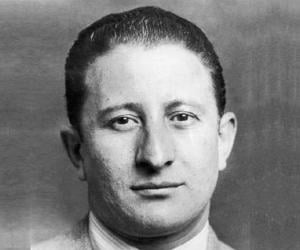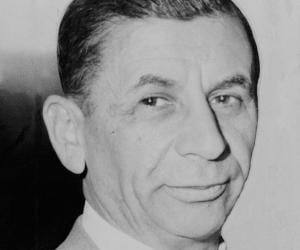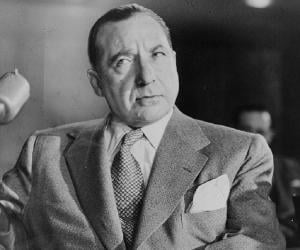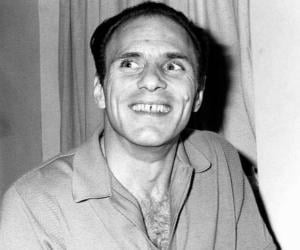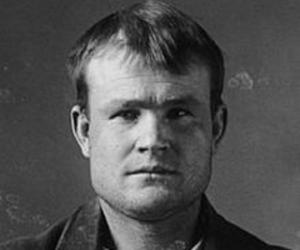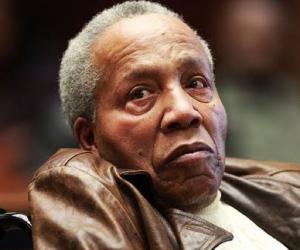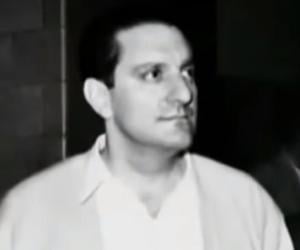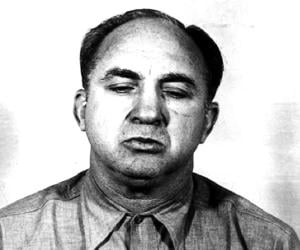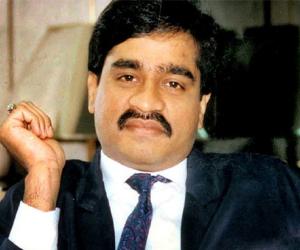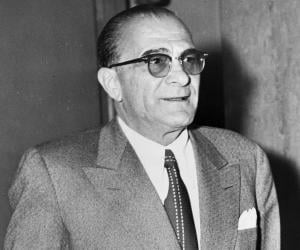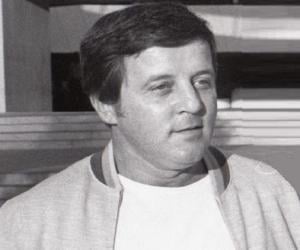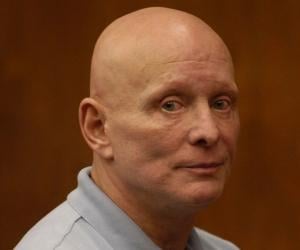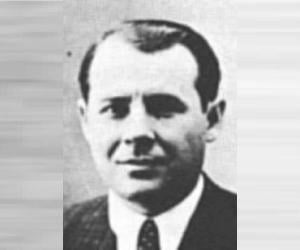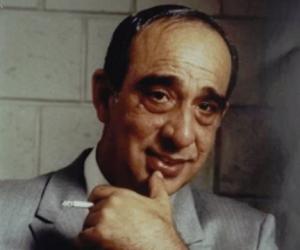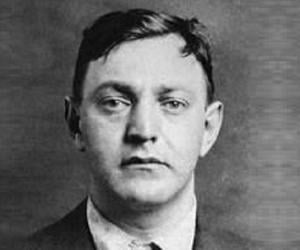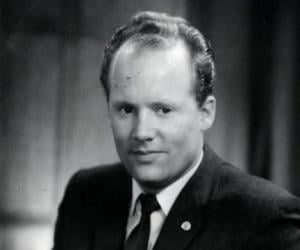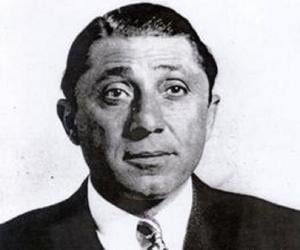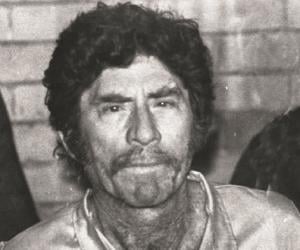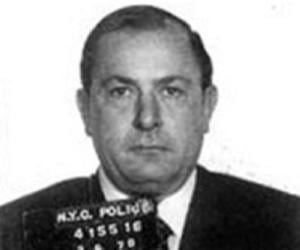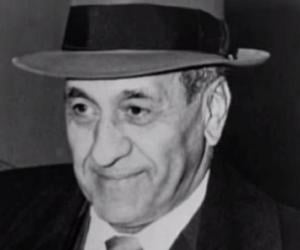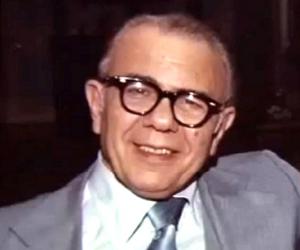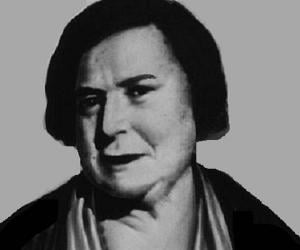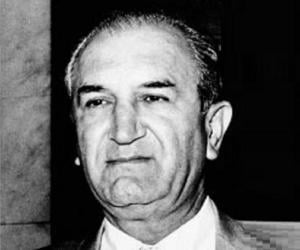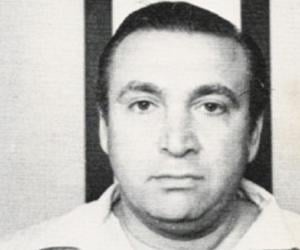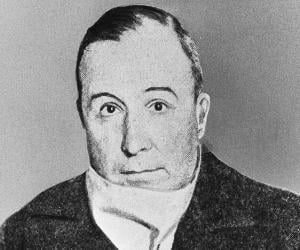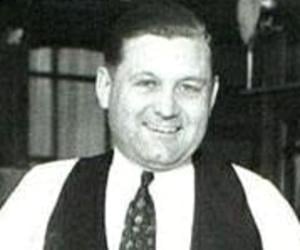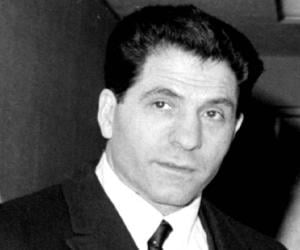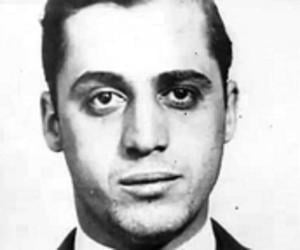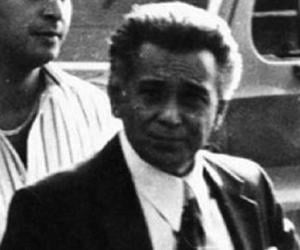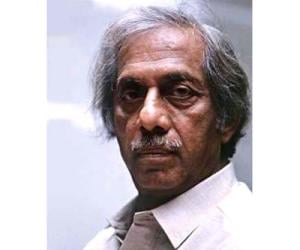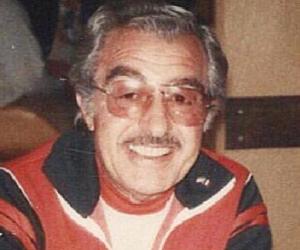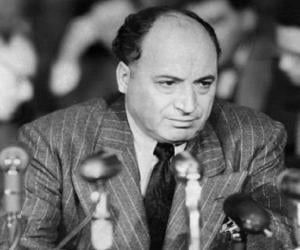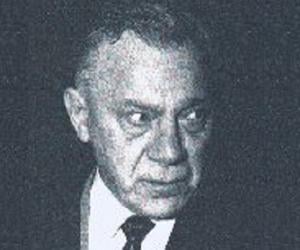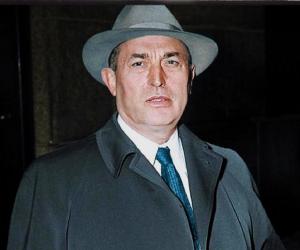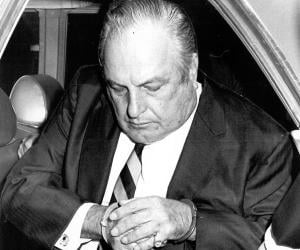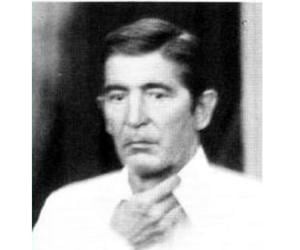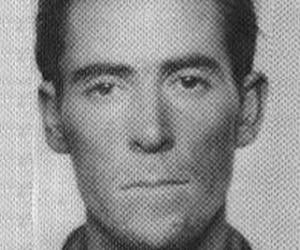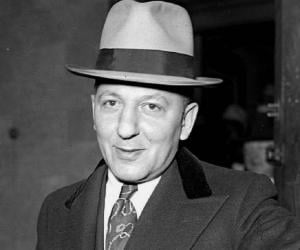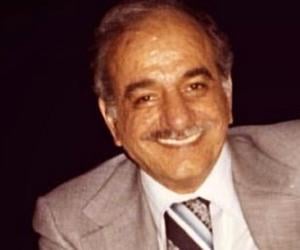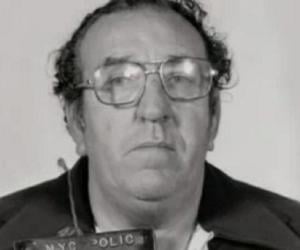A notorious Colombian drug lord, Pablo Escobar was the founder and leader of the infamous Medellín Cartel. His drug cartel monopolized the cocaine trade into the United States and he became one of the wealthiest criminals ever in history. Dubbed "The King of Cocaine", he left behind a controversial legacy upon his death at the age of 44.
Al Capone, also known by the nickname Scarface, was one of the most notorious American gangsters who controlled the organised crime in Chicago between 1925 and 1931. He was known for violence and cruelty in eliminating rival gang members, the most infamous incident being the St. Valentine’s Day Massacre. His life inspired numerous books and films.
Ronald Kray was a British criminal involved in organized crime in the East End of London in the 1950s and 1960s. Along with his twin brother, Reggie, he ran a gang that was notorious for committing murders, armed robberies, and arson among other criminal activities. The brothers were arrested in 1968 and sentenced to life imprisonment.
Whitey Bulger was an Irish-American FBI informant and organized crime boss. His arrest and subsequent trial exposed FBI handler John Connolly who had helped Bulger in return for the latter's information about the Patriarca crime family. Bulger's life and work inspired the 2015 film Black Mass. Many fictional TV and film characters have also been inspired by Whitey Bulger.
An Italian-born gangster, Lucky Luciano is regarded as the father of modern organized crime in the US; he served as the first boss of the Genovese crime family. He also played a key role in the rise of the National Crime Syndicate. His life and style inspired several films, television series, and books. His eponymous biopic was released in 1973.
Michael Franzese's story of being an influential member of the Colombo crime family to becoming a motivational speaker and writer inspired several works of art, including Martin Scorsese's 1990 film Goodfellas where he was played by actor Joseph Bono. In 1986, he was named in Fortune magazine's list of Fifty Most Wealthy and Powerful Mafia Bosses.
A gangster of the Great Depression era, John Dillinger led a group known as the "Dillinger Gang". His gang was accused of robbing 24 banks and four police stations. He was a master evader and escaped the police’s attempts to capture him many times. He was finally shot to death by the authorities in 1934.
John Gotti was the boss of the Gambino crime family, described as America's most powerful crime syndicate. It made millions per year from criminal activities like racketeering, loan sharking, drug trafficking, prostitution, extortion, pornography and illegal gambling. The FBI convicted him in 1992 and he was sentenced to life in prison without parole and later died of throat cancer.
Notorious mobster Bugsy Siegel held significant influence within the Italian-American Mafia and was regarded as a “celebrity gangster.” Good-looking and charismatic, he was an enigmatic figure. He played a key role in the development of the Las Vegas Strip. Noted for his prowess with guns, he met a grisly end when he was shot dead in 1947.
The Robin Hood of Australia for many and villain for others, Ned Kelly become immortal not just for his murderous confrontation with the police, but also for his reported last words “such is life”. The bushranger and outlaw remains a cult figure in Australia even a century after his execution. His sympathizers considered his as a champion of the poor.
Carlo Gambino was an Italian-American kingpin of the famous Gambino crime family. He took over the Commission of the Mafia after the incarceration of Vito Genovese in 1959. Although he was involved in organized crime for more than five decades, he was imprisoned for only 22 months for a tax evasion charge. Carlo Gambino is often portrayed in crime films.
Frank Costello was an Italian-American kingpin of the famous Luciano crime family. After serving as a trusted consigliere for the Luciano crime family under Lucky Luciano, Costello became acting boss in 1937 when underboss Genovese fled to Italy, while Luciano was imprisoned. However, he retired in 1957 to avoid an altercation with Genovese, who wanted to rule the crime family.
Italian-American gangster Joe Gallo, nicknamed "Crazy Joe,” was part of New York’s Colombo crime family. Initially an associate of the Profaci crime family, Gallo was later involved in the First Colombo War. He was suspected of launching an attack on Joseph Colombo and was shot dead on his 43rd birthday.
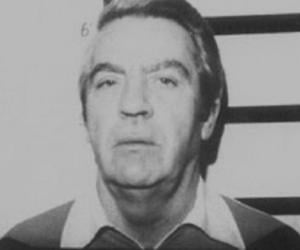
Train and bank robber Butch Cassidy was the leader of a gang of criminal outlaws known as the "Wild Bunch" in the Old West. The son of ranchers, he ran away from home as a teenager and became involved in a life of crime. He started with minor criminal offenses and eventually became a much-feared robber.
Popularly known as the Howard Hughes of the Mob, Paul Castellano was the head of the Gambino crime family. He played such a prominent role in the American underworld that he was later portrayed in several films, such as Gotti, Witness to the Mob, and The Big Heist.
Mickey Cohen was a gangster who became involved with the Chicago Outfit before running multiple businesses like casinos, nightclubs, gas stations, and floral shops. His association with the underworld and his violent methods make him a popular choice for gangster character in crime films; he has been portrayed by popular actors in films like Bugsy, L.A. Confidential, and Gangster Squad.
A mobster and drug dealer most wanted by India, Dawood Ibrahim heads the organized crime syndicate popularluy known as D-Company. He was named No.3 on The World's 10 Most Wanted Fugitives by the FBI in 2011. He is wanted on the charges of terrorism, murder, targeted killing, extortion, and drug trafficking among other crimes.
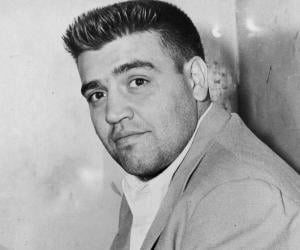
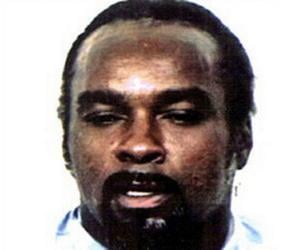
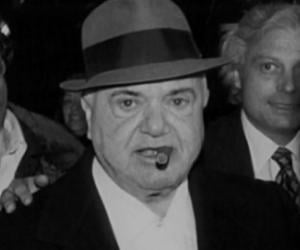
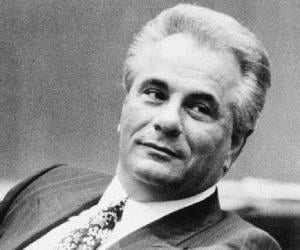
Gangster and mafia boss Carmine Persico, also known as The Snake, Junior, and Immortal, led the New York-based Colombo crime family for a long time. He had been convicted for a number of crimes, including racketeering and loan-sharking and was serving a 139-year sentence when he died in 2019.
Mobster Danny Greene was an associate of Cleveland-based gangster John Nardi in the 1970s’ gang war, in which they set off car bombs. Greene served as the president of the International Longshoremen's Association and also had his own gang, named the Celtic Club. He was assassinated in a car-bomb attack.
Frank Nitti was an Italian born-American mobster and one of Al Capone's main henchmen. Renowned for his leadership skills, Nitti succeeded Al Capone to become the boss of the Chicago Outfit. His life and work inspired the 1988 biopic Nitti: The Enforcer.
Ernesto Fonseca Carrillo is a convicted Mexican drug lord. He led a now-defunct criminal group called the Guadalajara Cartel alongside Rafael Caro Quintero and Miguel Ángel Félix Gallardo. In 1982, the Drug Enforcement Administration indicted him in a money laundering operation, but he fled back to Mexico where he was finally arrested in 1985.
Sam Giancana was an American gangster. From 1957 to 1966, Giancana was the boss of the Chicago Outfit. He played a major role in the Central Intelligence Agency's plot to kill Cuban leader Fidel Castro as the CIA sought his help in their bid to assassinate Castro. Over the years, Giancana has been depicted in films, TV series, and literature.
Sicilian-American mobster Angelo Bruno led the Philadelphia crime family for 20 years. He was known as The Gentle Don or The Docile Don due to his dislike for violence. He was killed by a shotgun blast in his car, and his murder caused a mob war for 4 years.
Italian-American crime boss Joseph Bonanno was the leader of the Bonanno crime family for almost four decades. Introduced to organized crime as a child, he proceeded to become one of the youngest-ever bosses of a crime family at just 26. He successfully evaded arrest for many decades. He lived a long life and became a writer in his later years.
Roy DeMeo was an Italian-American gangster in the Gambino crime family of New York City. He was the leader of the DeMeo crew, a gang notorious for committing a series of brutal murders. He was involved in various illegal endeavors and was a silent partner in a peep show/prostitution establishment. His bullet-ridden body was found under mysterious circumstances in 1983.
Joe Masseria was an Italian-American Mafia boss who controlled the Genovese crime family from 1922 to 1931. He was killed in the Castellammarese War, which was fought for control over illegal activities in New York City. Since his death, Joe Masseria has been portrayed in several films like The Valachi Papers, Lucky Luciano, Mobsters, and Lansky.
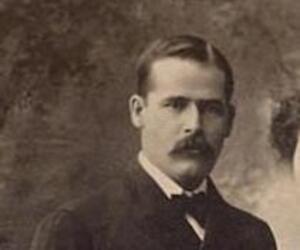
Sundance Kid was the nickname of Harry Alonzo Longabaugh, an outlaw and member of Butch Cassidy's Wild Bunch in the American Old West. He first met Cassidy around 1896 and became part of his gang. As a Wild Bunch member, Sundance Kid participated in several train and bank robberies. He is believed to have been killed in 1908.
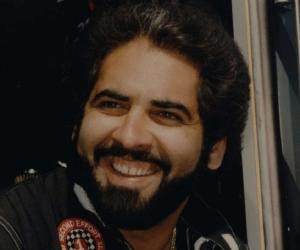
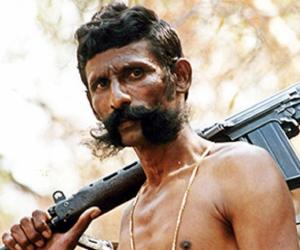
Bugs Moran was an American gangster whose rivalry with Al Capone, the co-founder of the Chicago Outfit, is regarded as one of the most notorious rivalries in the history of the American Mafia. Over the years, Moran has been depicted in many films, including The St. Valentine's Day Massacre, Al Capone, and Gangster Land.
John Franzese was a mobster who served as the underboss of the infamous Colombo crime family from 1963 to 1967. In 2005, he once again became the underboss of the crime family until he was convicted in 2011. Franzese was 100 years old at the time of his release; he was the only centenarian in federal custody at that time.
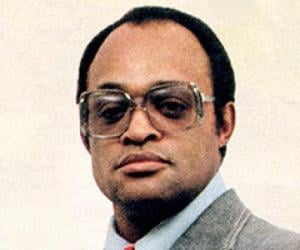
Alvin Karpis was a criminal best remembered for leading the infamous Barker-Karpis gang in the 1930s. Renowned for his sinister smile, Karpis, who was nicknamed Creepy, was captured by the FBI in 1936. He was then sentenced to life imprisonment and was released on parole in 1969. He spent his later years writing memoirs like The Alvin Karpis Story.
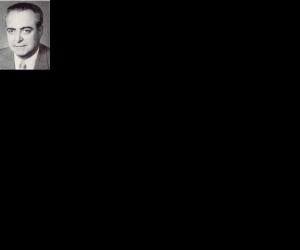
Ralph Capone, older brother of infamous gangsters Al and Frank Capone, was a mobster in his own right. He followed his brothers to Chicago, where he formed his own legitimate soft drink business, earning the nickname “Bottles.” His business was once second only to Coca-Cola in the non-alcoholic beverage market.
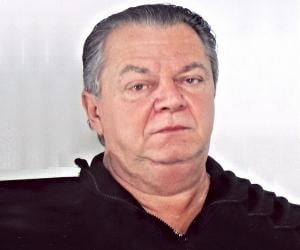
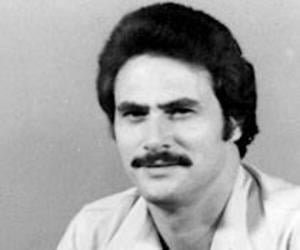
Joe Profaci was an Italian-born New York City mafia boss. He founded what later became the Colombo crime family in 1928 and was the family's boss for over three decades. It was the last of the Five Families to be organized. Besides his illegal activities, he also maintained several legitimate businesses. He died of liver cancer in 1962.
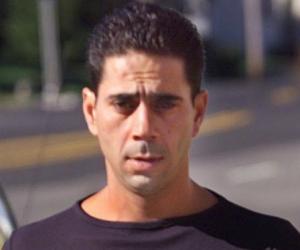
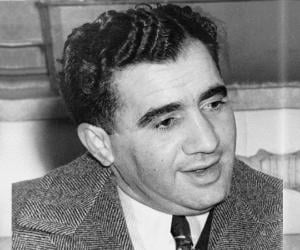
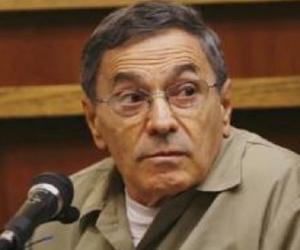
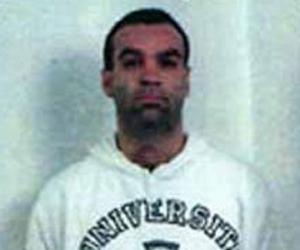

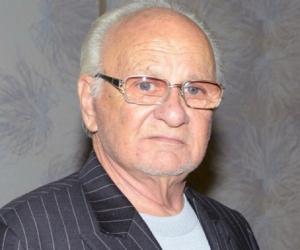
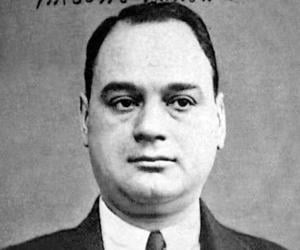
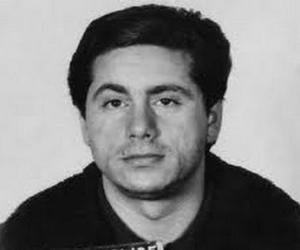
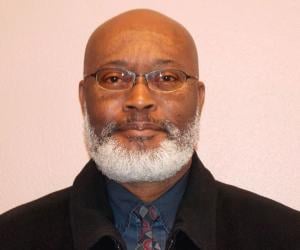

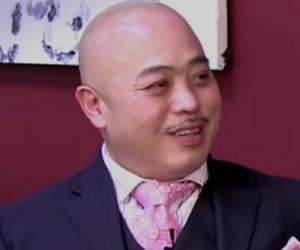
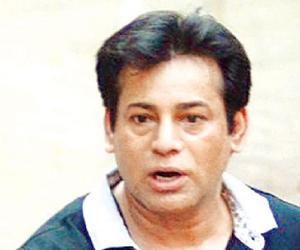
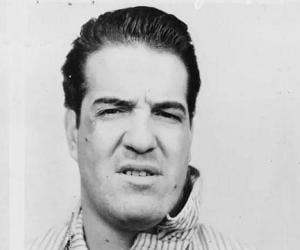
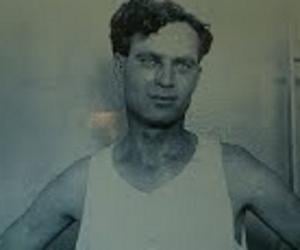
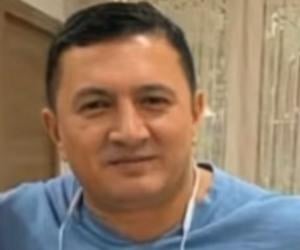
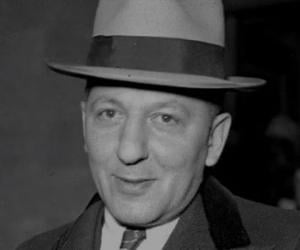
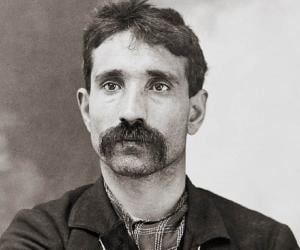
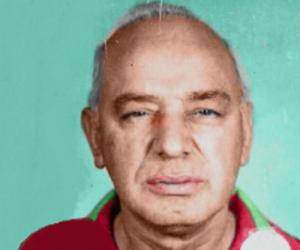

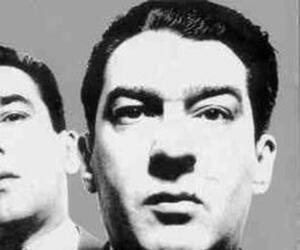
Reginald Kray was an English gangster who was one of the leading perpetrators of organized crime in the East End of London along with his twin brother Ronald Kray. Along with their gang, which came to be known as The Firm, the identical twin brothers were involved in armed robbery, murder, arson, and protection rackets from the late-1950s to 1967.

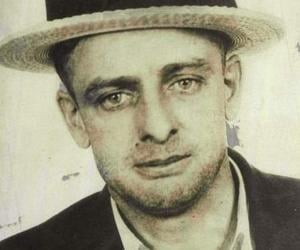

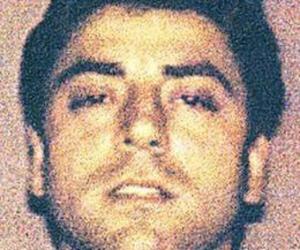
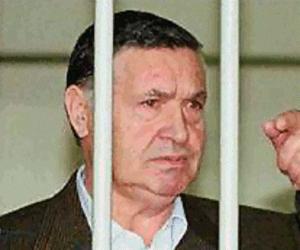
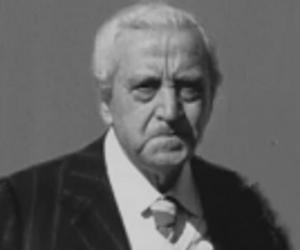
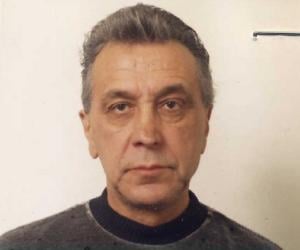
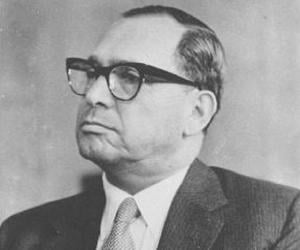
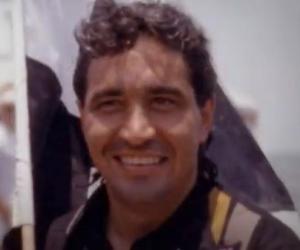
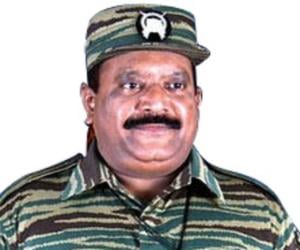
Velupillai Prabhakaran was a Sri Lankan Tamil militant best remembered for founding the Liberation Tigers of Tamil Eelam, which aimed at creating a separate Tamil state in the east and north of Sri Lanka. His actions, which were triggered by the oppression of Sri Lankan Tamils, resulted in the infamous Sri Lankan Civil War.
